
Our Optometrist-Performed Examinations: Professional, Personlized Eye Care
Our north Edmonton eye clinic specializes in eye care and prescription eyewear. Schedule an appointment with us today, and you will see how and why our Edmonton eye exams are considered one of the most thorough, comprehensive, advanced, and personalized available. Visit our optometrists and opticians at our Edmonton clinic today, and you will see how professional patient-first personalized eye care and eyewear enables you to be your very best. An eye exam today will provide you with the ability to see the future!
Schedule An Exam Our Optometrists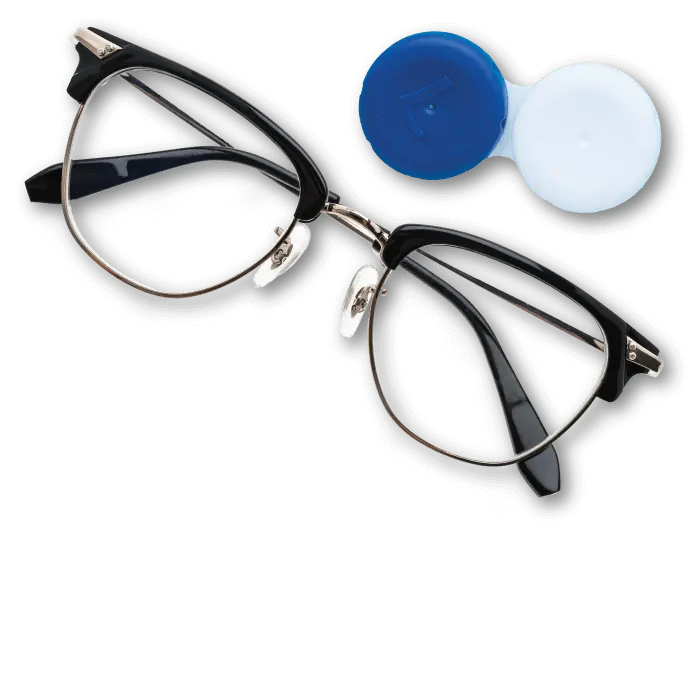
(780) 473-6123
Eye-deology Vision Care, Edmonton
Our Edmonton Eye Exams: This Is What Makes Them The Best!
- Experienced Edmonton Optometrists: When it comes to providing healthcare, there is no substitute for experience and know-how.
- Personalized Care: Every person and every eye is unique. We customize eye care based on the needs of our patients.
- A Professional Team That Cares: Eye care requires a team effort. Every one of our professionals contributes to patient care and service.
- State-of-the-Art Diagnostic Technology: Technologies promote the early detection of diseases causing irreversible vision loss.
- Thoroughness: Patient-first service that dedicates the time, resources, and know-how to provide world-class eye care.
- Patient Education: Our eye care professionals make every visit a friendly, informative learning experience.
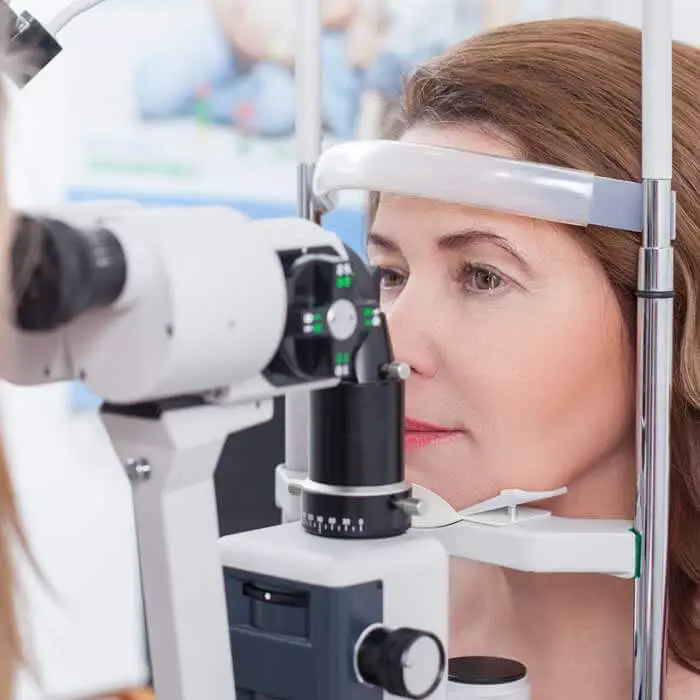
3. Optometrist Performed Eye Examination
eye-deology Vision Care Edmonton optometrists perform a multitude of tests and assessments to evaluate ocular health, eye coordination, and visual acuity. In addition, they also evaluate the results of the tests and scans performed during pre-testing. As part of patient education, our optometrists also take the time to show and explain results to patients.
14. Our Edmonton Eye Exam - Optometrist Exam:
Discuss Medical & Vision Concerns. Tailored Eye Care
The optometrist will discuss any concerns identified by the patient during pre-testing. The medically relevant conditions or symptoms reported by the patient, along with their medical history, will assist the optometrist in determining if additional specialty tests are required, formulating a diagnosis, and providing a treatment plan.
Schedule Eye Exam
15. Our Edmonton Eye Exam - Optometrist Exam:
Visual Acuity. Assessing Sharpness of Vision
Among the first tests performed in a comprehensive eye exam are visual acuity tests that measure the sharpness of your vision. These usually are performed using a projected eye chart to assess your distance visual acuity and a small, hand-held acuity chart to measure your near vision.
Schedule Eye Exam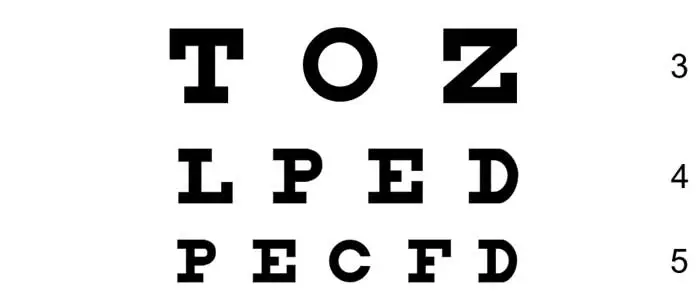
16. Our Edmonton Eye Exam - Optometrist Exam:
Cover & Binocular Vision. Evaluating Eye Coordination
A cover test or cover-uncover test is an objective determination of the presence and amount of ocular deviation. The test involves having the patient focusing on a near object. A cover is placed over an eye for a short moment then removed while observing both eyes for movement. A misaligned eye will deviate inwards or outwards. The process is repeated on both eyes and then with the patient focusing on a distant object.
Schedule Eye Exam
17. Our Edmonton Eye Exam - Optometrist Exam:
Eye Alignment Assessment. Diagnosing Strabismus
An eye alignment test is an essential examination for investigating strabismus. Optometrists use a variety of tests to evaluate eye alignment. For more information on the techniques used to assess eye alignment and identifystrabismus, please ask our optometrists during your eye exam.
Schedule Eye Exam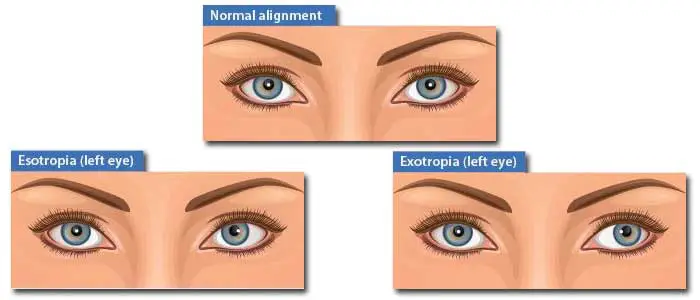
18. Our Edmonton Eye Exam - Optometrist Exam:
Pupillary Testing. Evaluating Pupil Size, Shape & Reaction
Like the cover test, the equipment required to perform pupil testing is minimal. All that is needed is a pupillary gauge and a transilluminator, or penlight. During pupillar testing an optometrist will evaluate four elements: 1) pupil shape, location and size; 2) pupillary reaction to light; 3) pupillary reaction to the swinging flashlight test; and 4) pupillary reaction to a nearby stimulus.
Schedule Eye Exam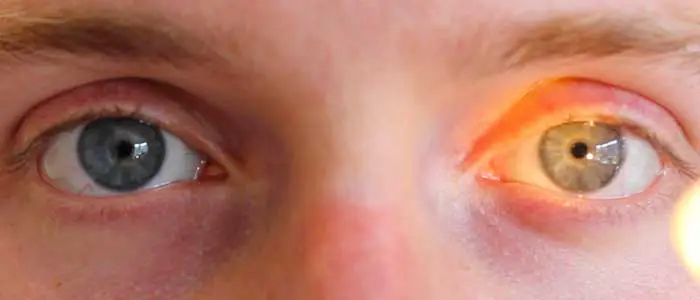
19. Our Edmonton Eye Exam - Optometrist Exam:
Extraocular Muscles. Assessing Strength & Function
Extraocular muscle function testing examines the function of the eye muscles. Patients sit or stand with their head up and looking straight ahead. The optometrist will hold a pen or other object approximately 40 centimetres (16 inches) in front of their face and move it in several directions. Patients then follow the pen with their eyes without moving their heads.
Schedule Eye Exam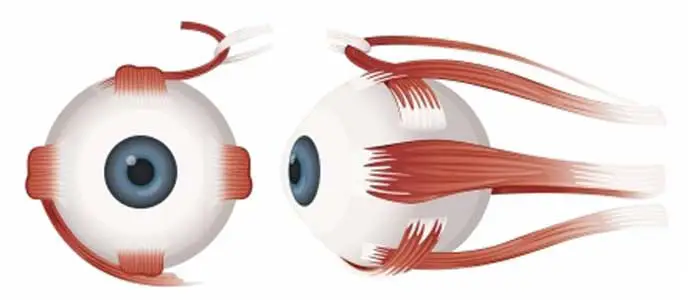
20. Our Edmonton Eye Exam - Optometrist Exam:
Refraction. Determining Refractive Error & Prescription
The refraction test portion of an eye exam assesses a patient's prescription for eyeglasses or contact lenses. For the test, patients sit in a chair with a device, called a phoropter or refractor, attached to it. The patient looks through the phoropter and focuses on an eye chart approximately six metres (20 feet) away. The eye doctor performing the test will ask if the chart appears more or less clear when different lenses are in place. The test is performed one eye at a time.
Schedule Eye Exam
21. Our Edmonton Eye Exam - Optometrist Exam:
Slit Lamp. Examining Front Ocular Structures
A slit lamp is a binocular microscope (or "biomicroscope") that our eye doctors use to examine the structures of your eye under high magnification. During the slit lamp exam, patients place their forehead and chin securely against the rests on the front of the instrument so the eye doctor can examine the structures of the front of their eyes. A variety of eye conditions and diseases can be diagnosed with the slit lamp exam, including cataracts, macular degeneration, corneal ulcers and diabetic retinopathy, etc.
Schedule Eye Exam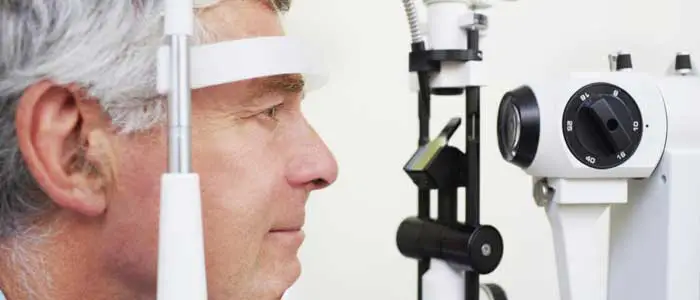
22. Our Edmonton Eye Exam - Optometrist Exam:
Dry Eye Testing. Analyzing Tear Film & Break-Up
Our optometrists use several tests to assess the presence, severity, and cause of dry eye syndrome. The advanced, modern diagnostic technologies at Eye-deology Vision Care use a combination of white and infrared light to non-invasively evaluate tear film quality. Eye-deology Vision Care's high-resolution colour camera makes even the tiniest structures of the eye visible. Moreover, in addition to measuring tear break-up time and meniscus tear, these technologies evaluate the lipid layer and tear film dynamics. All of these measurements are essential to diagnosing and treating dry eye symptoms.
Schedule Eye Exam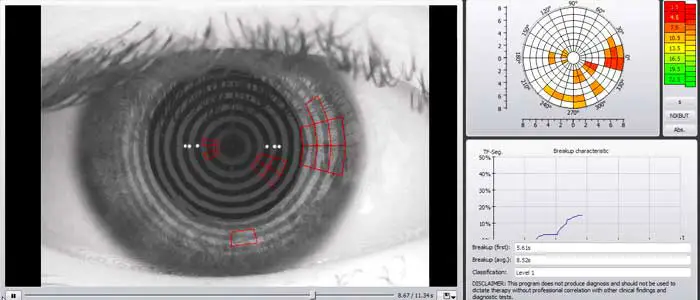
23. Our Edmonton Eye Exam - Optometrist Exam:
Pupil Dilation. Assessing The Health of The Retina
The view to the back of the eye is limited when the pupil undilated. When your pupil is small, an optometrist can see your optic nerve and macula, but the view of the retina periphery is limited. A dilated pupil is necessary to see the entire retina. Optometrists dilate pupils using special eye drops. They typically take about 15-30 minutes to fully dilate the pupils, depending on the person’s response to the medication and often, take 4-6 hours to wear off.
Schedule Eye Exam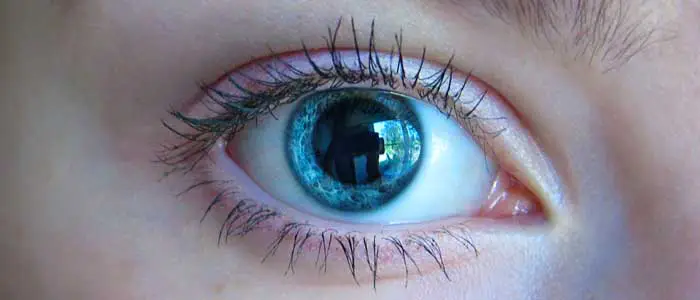
24. Our Edmonton Eye Exam - Optometrist Exam:
BIO. Assessing Retina Periphery Health
A Binocular Indirect Ophthalmoscope, or BIO, is an instrument used by optometrists to examine the interior structures of the eye. Specifically, eye doctors use it to evaluate the periphery of the retina, an area that cannot be seen or scanned with other instruments. Individuals with no medical history or symptoms typically require BIO evaluations once every 3-5 years.
Schedule Eye Exam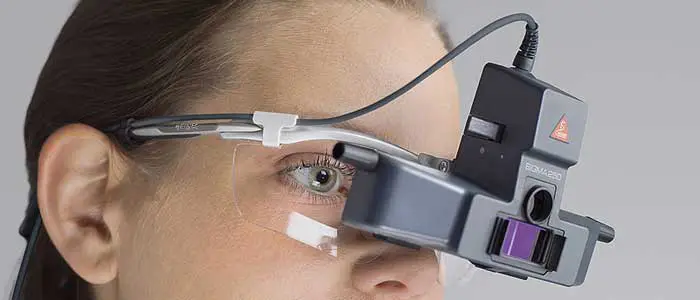
General Edmonton Eye Exam Questions
Annual eye exams are especially important for children and seniors, and for those individuals with systemic conditions, such as diabetes.
Our Edmonton Optometrists
Searching for an optometrist in Edmonton? Our experienced Edmonton eye doctors use advanced modern technologies and devote upwards of 500% more time towards providing personalized patient care than elsewhere so that they can see more and ensure that you may never see less. Position yourself to see the future with a visit to our eye clinic and Edmonton's best eye care!

Dr. Jennifer Ash, OD
Dr. Jennifer Ash is the Resident Optometrist at Eye-deology Vision Care. Dr. Ash provides patient care 5 days a week. Read more about Dr. Ash.

Dr. Ruhee Kurji, OD
Dr. Ruhee Kurji is an Associate Optometrist at Eye-deology Vision Care. Dr. Kurji provides patient care Tuesdays & Fridays. Read more about Dr. Kurji.

Dr. Jade McLachlin, OD
Dr. Jade McLachlin is an Associate Optometrist at Eye-deology Vision Care. Dr. McLachlin provides patient care 5 days a week. Read more about Dr. McLachlin.

Dr. Tania Mathews, OD
Dr. Tania Mathews is an Associate Optometrist at Eye-deology Vision Care. Dr. Mathews provides patient care 2 days a week. Read more about Dr. Mathews.
Learn Why Our Edmonton Optometrists Are The Best!


